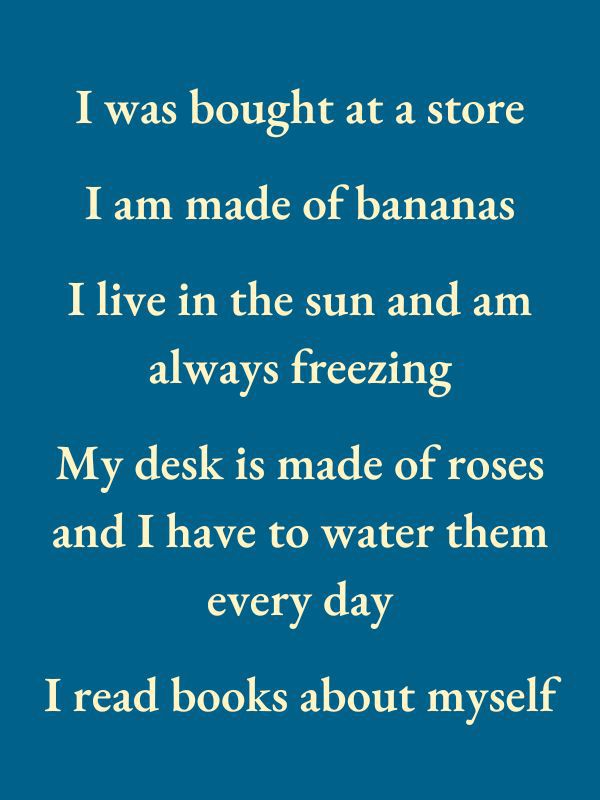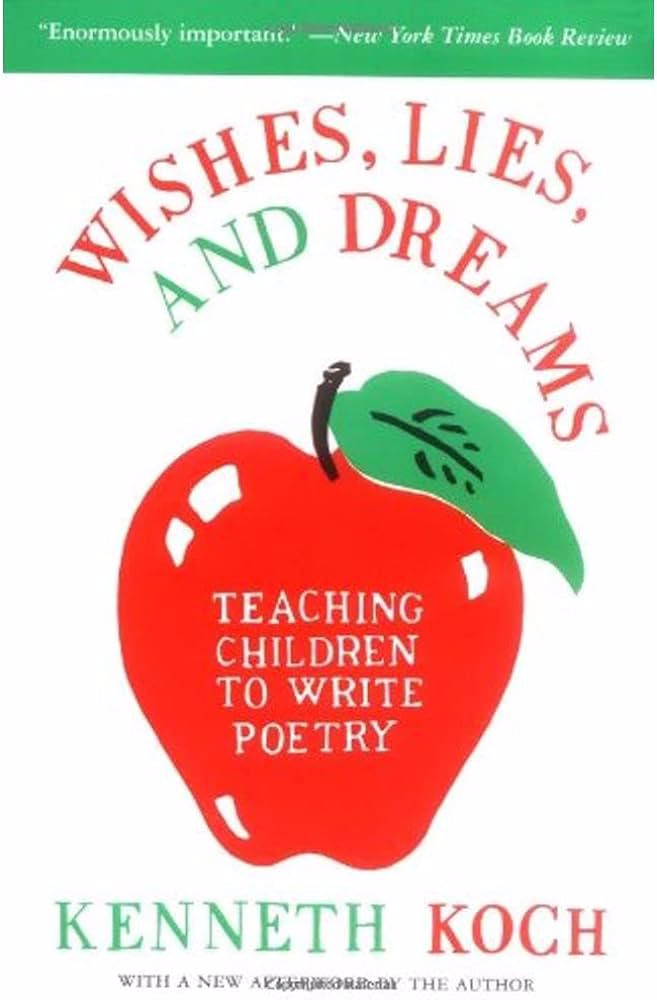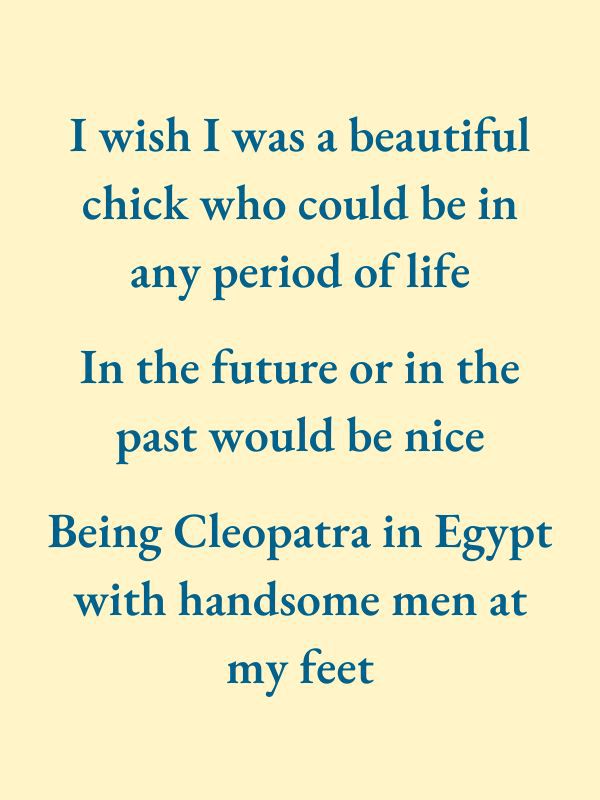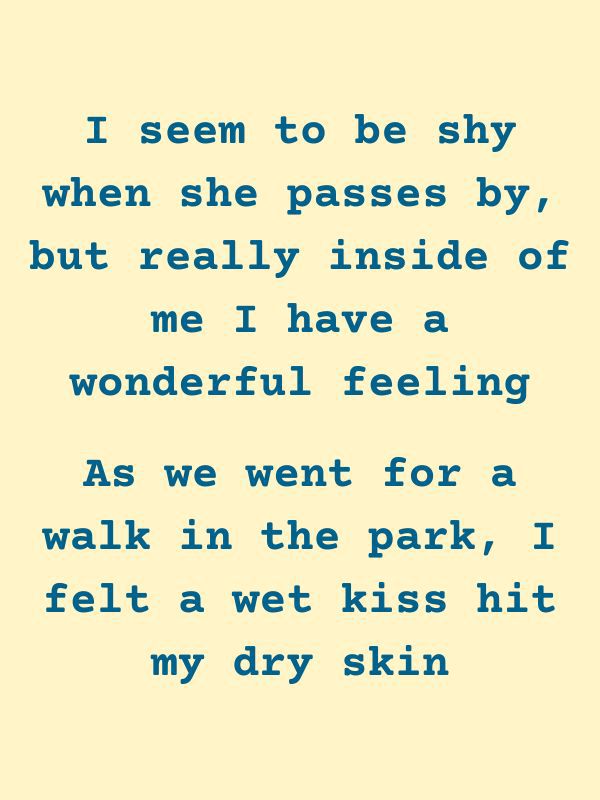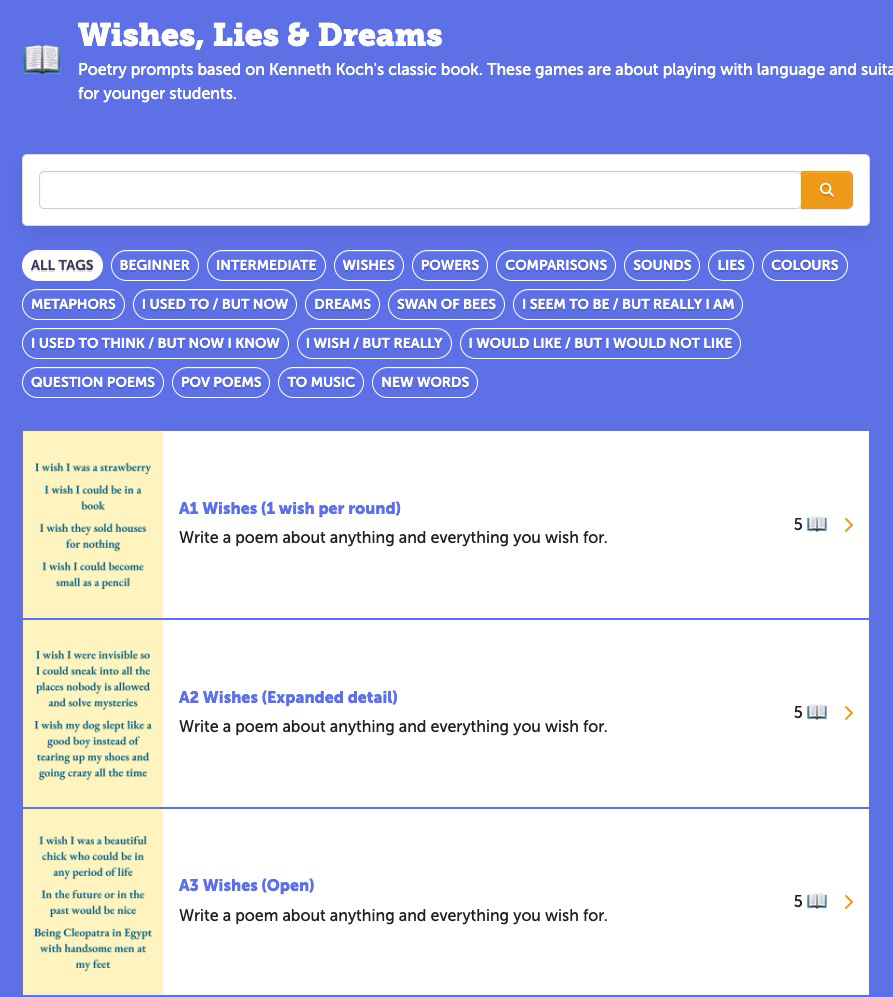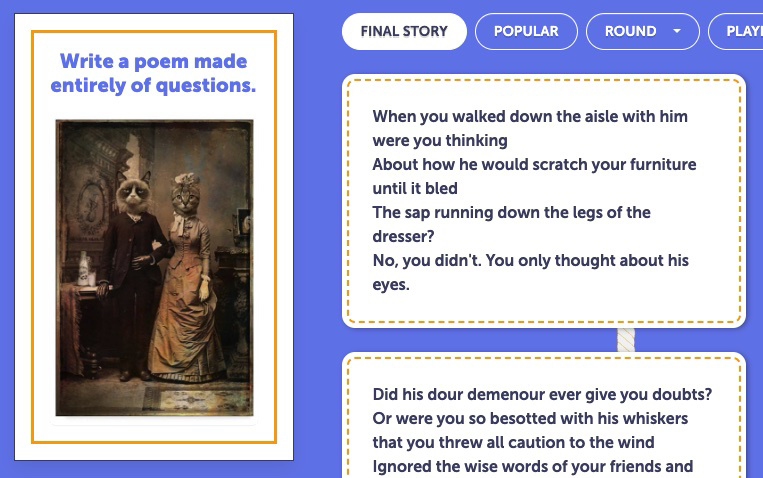We've published a collection of poetry writing prompts based on the poet Kenneth Koch's 1970 classic, Wishes, Lies & Dreams.
I've had a copy of this book for decades, but never used it in teaching. What appealed to me in this instance was its accessibility; Koch worked with NYC kids in grades 1-6, so he was interested in finding hooks that made students want to write and think of themselves as poets.
For example, he would ask young students to write lists of wishes or lies, since, on those topics, kids had plenty to say and weren't constrained by reality:
Meanwhile, for older students, he developed patterns such as "I seem to be / But really" that fit their growing self-consciousness.
We've adapted 18 of Koch's formats as Frankenstories poetry game prompts, scaled at a few levels of complexity to create 55 prompts in total.
These games are not technical; there's nothing about rhyme or meter or particular forms (though they do explore metaphor and onomatopoeia).
Their purpose is to invite students to play with language, sound, and image (and use line breaks), and to develop a taste for both writing and reading poetry.
For example, here is a poem based entirely on asking questions and speculating about the answers:
And this is a poem that uses words from an unfamiliar language (in this case, Wiradjuri):
More to come
We'll publish a few more poetry prompt collections in the coming months, but I hope these are a useful start for those of you teaching poetry, especially to younger grades.
Let us know if you have any feedback!

